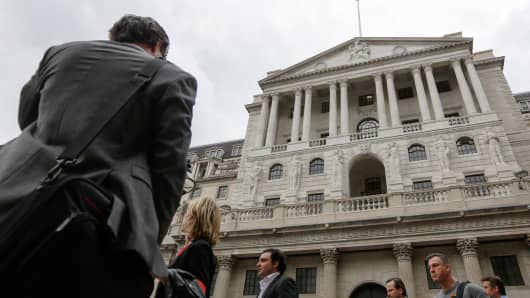Severing ties to Europe may help Britons regain a sense of independence and better control over their nation's destiny. It will do little, though, to help their economy, according to analysts.
The U.K. is close to slipping into another recession, and that will likely influence the vote of many who head to polls on Thursday to decide whether the country should stay in the European Union, or leave it.
Gross domestic product advanced by just four-tenths of a percent in the first quarter of this year, down from six-tenths of a percent in the fourth quarter of 2015. That's the slowest rate since the fourth quarter of 2012, according to the Office for National Statistics. Some of the blame goes to uncertainty over the outcome of the upcoming referendum, scheduled for Thursday.
The leave argument rests heavily on the notion that, once freed from an oppressive thicket of EU regulations spewed by Brussels bureaucrats, Britain's feeble economy will once again regain its glory as a fully independent world power.
But if voters approve an exit from Europe's political and economic bloc, most analysts are forecasting severe economic withdrawal pains.



